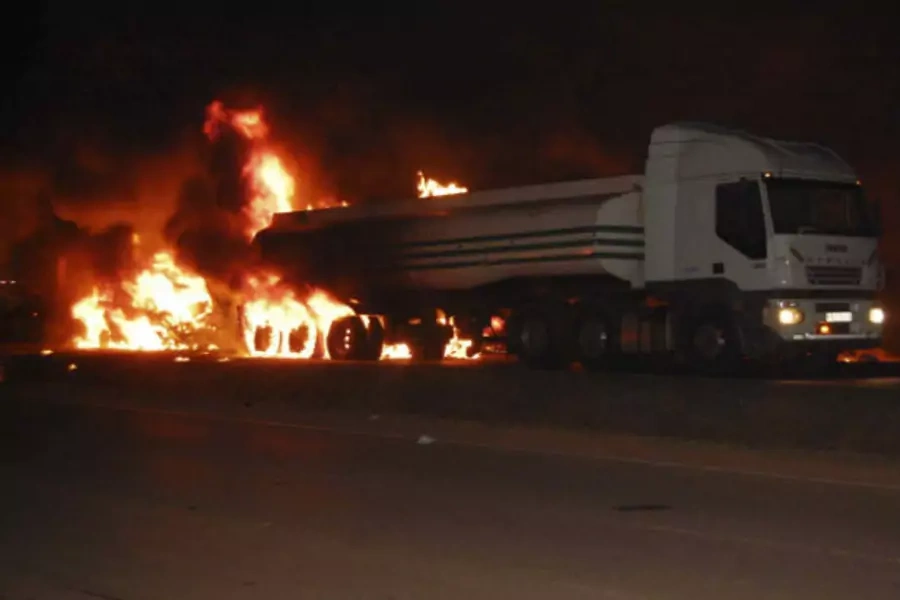More on:
This is a guest post by Brooke Bocast, a PhD candidate in anthropology at Temple University and a visiting predoctoral fellow at Northwestern University. She is currently writing her doctoral dissertation on gender, consumption, and higher education in Uganda.
“Was it greed, poverty, or both?” Uganda’s leading independent newspaper, the Daily Monitor, asked following the June 29 oil tanker explosion that claimed the lives of at least forty civilians. In an all too familiar scenario, many of the deceased had gathered to siphon fuel from the leaking tanker and perished when the vehicle burst into flames. Much of the East African media echoes international reactions to past fuel siphoning deaths in Nigeria, Ghana, the DRC, and Kenya. In brief: Why did they do it? Commentators propose ignorance, stupidity, and lack of regard for human life, in addition to the aforementioned poverty and greed. The siphoners are characterized as thieves and looters, driven by economic desperation to risk their lives in the pursuit of small spoils.
It is time to shift the discussion from the motivations of disenfranchised individuals to the contexts that normalize this risk-taking behavior. The July 6 editorial in The East African begins to approach this conversation. The editor draws a direct line between fuel siphoning among urban youth and money laundering among Uganda’s parliamentarians. Certainly, much ink has been spilled condemning “corruption” in African governments, and Uganda’s “get rich quick” ethos is hard to ignore. But to attribute these strategies, as the editor does, to the “moral bankruptcy” of the perpetrators, is to misread local understandings of scarcity and opportunity, causing the discussion to fall short.
Poverty and greed are insufficient explanations for the siphoning acts of slum dwellers and government officials. Anthropologists emphasize the zero-sum worldview that prevails across much of sub-Saharan Africa, wherein individuals–rich and poor–perceive resources as limited, and opportunities as fleeting. Conditions of uncertainty are evident across the continent; in this milieu, unguarded government accounts and overturned tankers are windfalls, not moral dilemmas.
This explanation is not meant to excuse petty or grand theft–nor to exonerate those responsible for failures in oversight, infrastructure, and emergency response in fuel tanker accidents–but to lend insight into actions that appear incomprehensible. Not everyone takes advantage of risk-laden opportunities, but those who do, and suffer the consequences, deserve compassion rather than condemnation. Judgment will not prevent future casualties, but understanding the roots of such recklessness might.
More on:
 Online Store
Online Store
